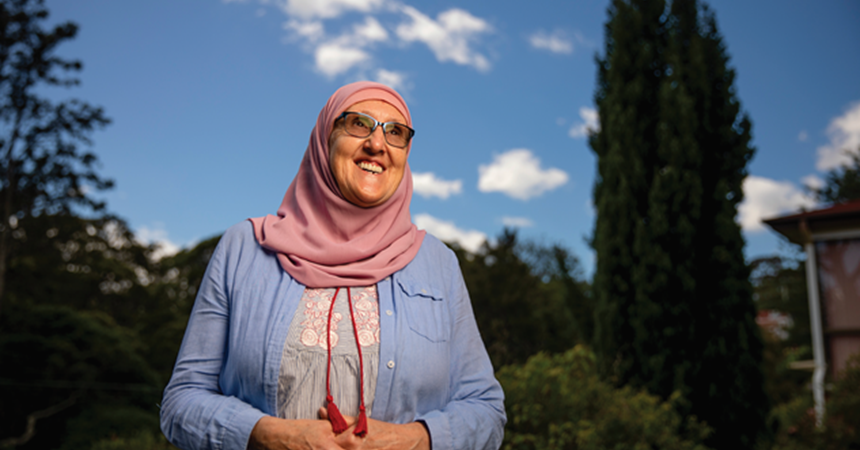Moves to reinforce connections were always afoot, and on 29 October 1989, the Newcastle Baha'i community held the first local Interfaith Service at Newcastle City Hall. About 320 people from five faiths attended and formed a multifaith working party.
The Diocese of Maitland-Newcastle has always been interested in supporting multifaith. Its Ecumenical and Interfaith Council facilitates and encourages multifaith initiatives at parish and regional levels. The diocesan document, Ecumenical and Interfaith Relations within the Catholic Diocese of Maitland-Newcastle, is based on Vatican II ecclesiology, recent decrees and studies. These guidelines promote the unity for which Jesus Christ prayed.
Alyson Segrott is the Diocese’s professional officer for pastoral ministries – communications – and has a central role in maintaining multifaith activities. She says the Diocese has taken on the role as the main driver of multifaith – at least until Covid – and bringing people together.
“We helped form The Hunter Interfaith Network – THIN – which operates informally,” says Ms Segrott. Attendees to the once-a-term meetings are not “officially” representing their religions. “It’s just the leaders and representatives from different faiths coming together to talk about initiatives we think might be useful,” she says.
Ms Segrott is the delegate for the Catholic faith at THIN, but also a representative for the Ecumenical Council when the four Abrahamic faiths discuss joint initiatives. She expresses heartfelt excitement for the 115-year-old Newcastle Jewish community’s appointment of a rabbi for the first in 60 years.
THIN was co-ordinated as result of the Lindt Cafe siege, a terrorist attack in December 2014 when a lone gunman, Man Haron Monis, held 10 customers and eight employees hostage in the APA Building in Martin Place, Sydney.
“Sections of the media were portraying rivalry among the faiths, with an emphasis on the Muslim community,” says Ms Segrott. “We wanted to show in the Hunter that we can come together in peace. And that’s how THIN developed.
“We use THIN to participate in the Unity and Diversity Festival in [Newcastle suburb] Hamilton. All the faiths and no faith march together under one banner. We participate together in Harmony Day. And the World Day of Peace.”
Diana Rah is a former vice-president and spokesperson for the Newcastle Muslim Association and an organiser of the Unity and Diversity Festival. She says her involvement in interfaith activities over the years has been spiritually enriching, on a community and a personal level.
“Diversity is a gift to be nurtured and the coming together of representatives of the various faith communities in friendship, in support of one another, reinforces this message,” says Ms Rah.
David Gubbay, honorary treasurer of the Newcastle Hebrew congregation, believes multifaith appreciation is a crucial part of community life. “Acceptance of worshippers of all faiths is vital to our continued harmony,” he says.
Ms Segrott helps link all the faiths. As an example, she cites NAIDOC week celebrations, which are shared between the Anglican cathedral and the Catholic cathedral.
“We ensure multifaith participation,” says Ms Segrott, “otherwise the other religions don’t get that opportunity, particularly the Muslim faith, to be able to celebrate NAIDOC week.”
She is happy to maintain the networks. “If the Uniting Church is staging an event, I will circulate that information to all the other faith groups,” she says. “During Covid, we just haven’t had any events.”
Canon Andrew Eaton SMMS is the Rector of St Luke’s at Wallsend and the Anglican chaplain at the University of Newcastle. He arrived in Newcastle from country Victoria in 2017 and was soon the Anglican representative on THIN.
“It has been a joy to discover what genuine interfaith dialogue and friendship can do for a region such as Newcastle and the Hunter,” says Canon Eaton. “People praying for one another and supporting one another through difficult and challenging times, regardless of religious or cultural backgrounds, strengthens our community.
“The themes of compassion, mercy, justice and love as being core to the Divine, resound forth from the faith traditions I work with on THIN and at the university chaplaincy centre. To be people for God means to be people for humanity, for mutual flourishing, and for harmony among people of faith.”



























































































